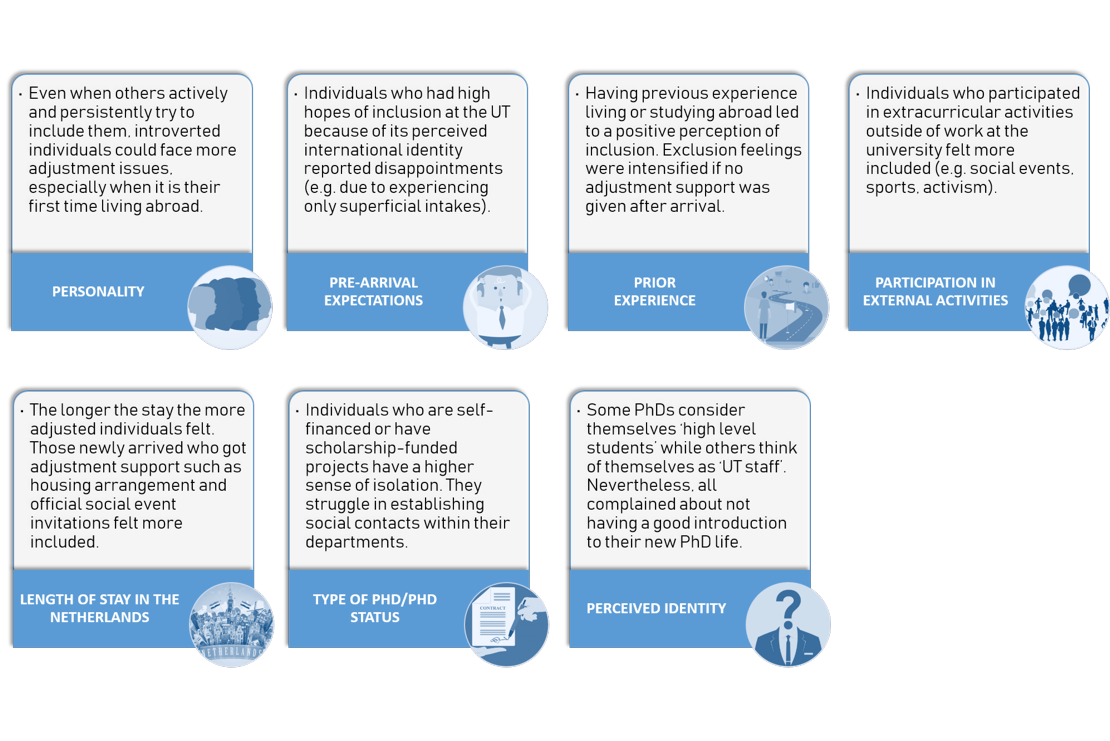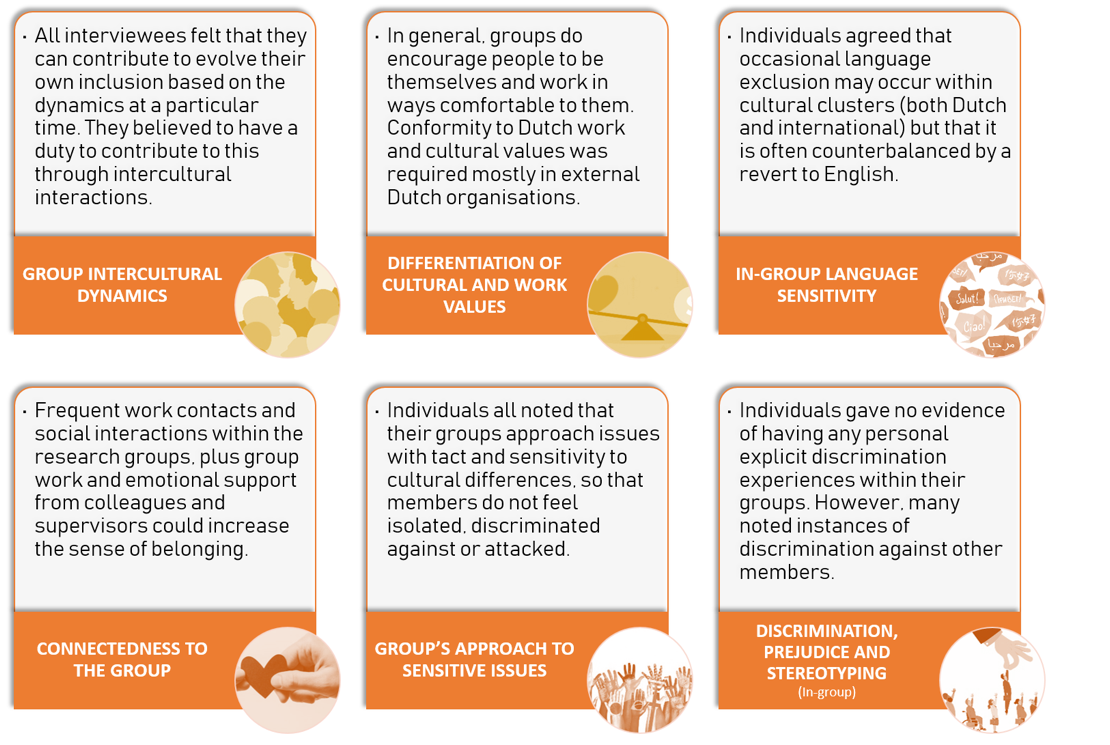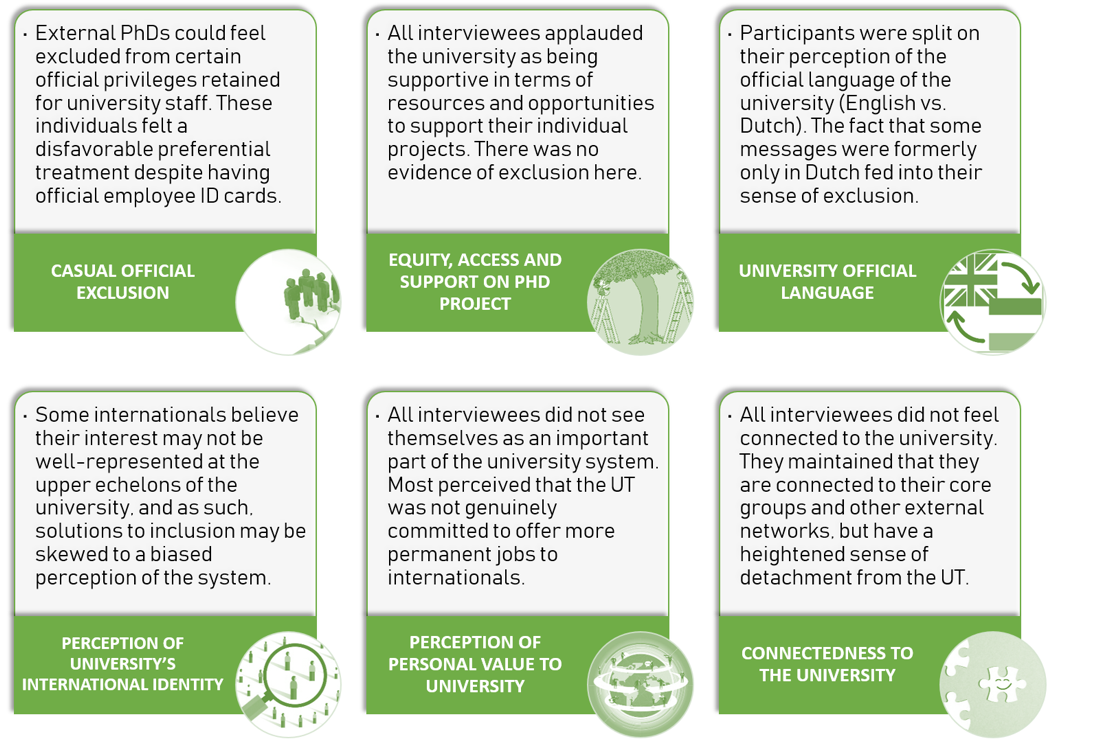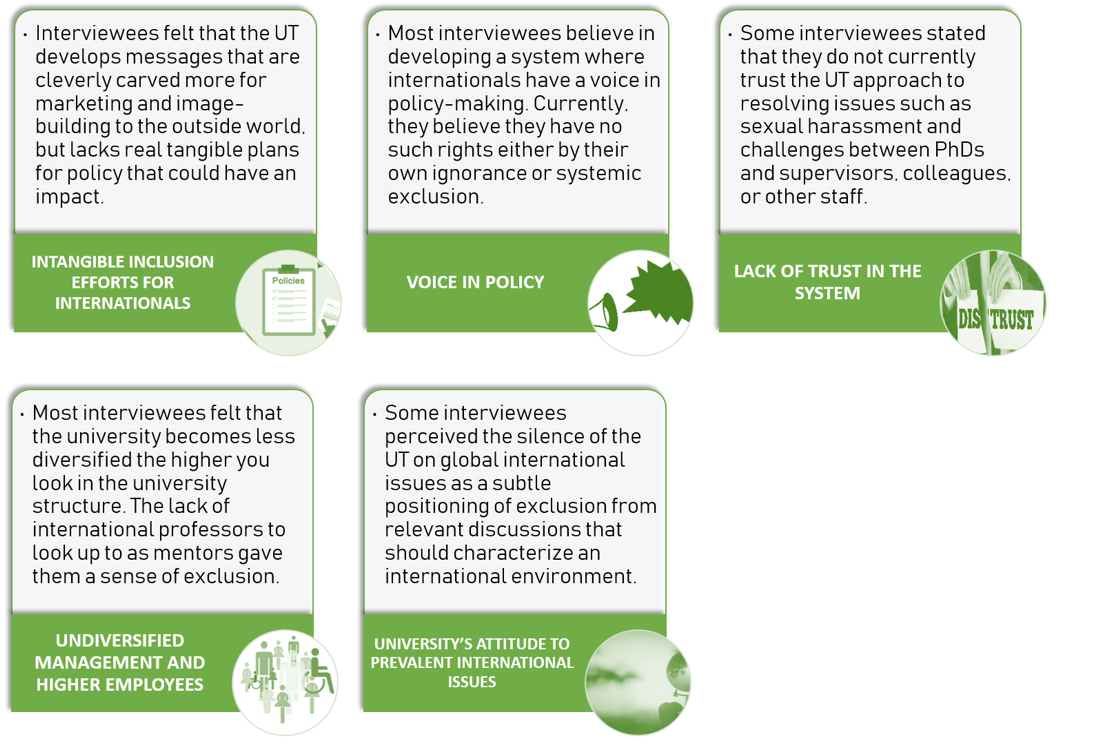Factors that Facilitate and Limit Inclusion of International doctoral Candidates at the University of Twente
Report on qualitative research findings (the full report will become available to download here)
What was done?
The Include-U project conducted research focused on international doctoral candidates as a unique group of migrants at the University of Twente (UT). The aim was to explore the factors that facilitate or limit the inclusion of international doctoral candidates to the UT’s international learning environment.
Why was research needed?
The UT currently has a higher international-to-local ratio only at the doctoral level, which is evident of its efforts to diversify the community at that level. However, this warrants a burden of inclusion for this group because it shares a lot of sojourning affinities with international students while having a temporary employment status at the same time. This makes it important to investigate the inclusion experience of this unique group of internationals at the UT.
How was research conducted?
In 2020, twenty international doctoral candidates participated in an hour-long interview for this research. In order to reflect the diversity ratio of international doctoral candidates at the UT, we were purposive in our selection of target respondents. Participants were of various nationalities (both ‘well’ and ‘under’ represented in the UT), western and non-western cultural backgrounds, races, gender, age, faculties (all represented), employment status (all represented) and marital status. We also only included individuals who have started their PhD for at least one year at the UT. This allowed us to separate their inclusion experience from the current overarching impacts of the Covid-19 pandemic.
How do international doctoral candidates perceive inclusion at the UT?
Participants had an adequate understanding of inclusion as a concept particularly on how it affects them as internationals at the UT. They generally had moderately positive perceptions of their inclusion experiences at the university. All candidates commended UT’s efforts on diversity and inclusion. They were aware that UT is most diversified at the doctoral level, evident in the higher percentage of internationals to locals compared with the student/staff levels in the institution’s systemic structure. Summarily, participants noted that the university's diversity and inclusion goals may contribute to its continued efforts to becoming a full-fledged internationalised institution. However, they emphasized that much work and changes must be accommodated to attain these objectives. They further enumerated some inclusion concerns and shortcomings at the university. Finally, they were also unsure if the diversity and inclusion objectives were initiated only as marketing, branding or image-building gimmicks targeted at the outside world or genuine movements for ideological and practical systemic changes at par with prevalent needs and realities.
What factors affect the inclusion of international doctoral candidates at the UT?
Many facilitating and limiting inclusion factors were deduced from the interviews. In some cases, the factors were dialectic: the same factor may have positive impacts on some international doctoral candidates while at the same time may have negative impacts on others. We distinguished 24 factors that affect inclusion at the UT. We collapsed these into three major levels: personal level factors, group level factors and institutional level factors. All participants were able to separate their experiences at these levels, which indicates that international doctoral candidates also have different expectations on inclusion at these levels.
Personal level factors

Group level factors

Institutional level factors


What is next for the Include-U project?
The findings of the qualitative study are only part of the picture. To round-up its research, the Include-U project is preparing a survey that will aim to collect a more complete picture on the factors that influence the inclusion experiences of international doctoral candidates at the UT. Once we have both quantitative and qualitative data on the topic, a detailed report will be accessible on this page.
Beyond that, the final task of the project will be to develop and apply strategies that can support or address the issues that have been unveiled or confirmed by the research. Finally, an assessment and reflection of all project activities and outputs will be summarized in a report that will be delivered to the UT authorities. The vision is that the UT takes responsibility to sustain the project goals and proposed activities in the long term.
I am a doctoral candidate, what can I do with these results?
You can help your community in many different ways. Here are just some ideas:
- Contrast the results with your own experience. Got something to add? Contact us!
- Participate in P-NUT events and give us your feedback.
- Join the P-NUT board and directly help the community with your own initiatives.
- Share and discuss the findings with your group and faculty, send us their impressions.
